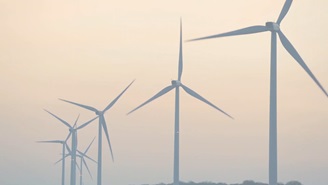Antitrust in the Digital Age
On July 27th, the chief executives of four (Alphabet, Amazon, Apple and Facebook) of the world’s most prominent technology companies will appear before the US Congress as part of an ongoing antitrust investigation into their market power.[i] This is the latest in a series of developments that includes federal and state-level investigations in the US into the market practices of these companies. Back in 2018, as part of Sustainalytics publication, ESG Risks on the Horizon, our team had noted that the antitrust related scrutiny of major technology companies is likely to persist given the market concentration these companies had established within the digital economy. While there is significant uncertainty as to the ultimate regulatory response, given the outsized position of these four companies in the S&P 500 and sustainability indices, this type of regulatory and market scrutiny is an area that is important for investors to examine in terms of long-term risks to the enterprise value of these companies.
Corporates leverage ESG Peer Performance Insights as a risk management tool
As the social and economic challenges of 2020 continue to unfold and markets remain in flux, the resilience of Environmental, Social, and Governance (ESG) investing marks a silver lining. In the context of today’s bear market, investors are demonstrating their preference for sustainable funds over traditional ones, with Q1 2020 seeing a global influx of USD 45.6bn, compared to outflows of USD 384.7bn for the overall fund universe. Europe has continued to account for the majority of this inflow into sustainable funds, while the U.S. has picked up pace with a 100% y-o-y increase, the highest regionally. Furthermore, Morningstar reported that 89%, or 51 out of 57, of its sustainable indices outperformed their market peers in Q1 2020. For ESG practitioners, this may not come as a surprise as experience has shown that companies with robust corporate cultures and sustainable business practices are best-positioned for long term resilience and growth, leading to stickiness of ESG investments.
The Race to Net Zero: Decarbonization Commitments in the Oil & Gas Industry
Recent reports concerning record decreases in global greenhouse gas (GHG) emissions due to the COVID-19 pandemic have spurred hope for a “green shift” in our global economy, post-pandemic. The importance of this shift cannot be understated, given that capital investments made within the next five-to-ten years will determine the world’s carbon pathway to 2050 and beyond.
Airlines Post-COVID-19: The Challenges to a Climate-Friendly Recovery
Planes grounded, borders closed and passengers staying at home: the past months haven’t been easy for the airline industry. COVID-19 has led to the deepest crisis ever in the history of the sector.[i] Airlines are in dire need of cash to recover, while at the same time the industry is also expected to adapt and prepare itself for the more critical crisis ahead that is climate change. Despite the slowdown of air travel, long term prospects of mitigating carbon footprint of the industry are not clear. Carbon commitments supported by comprehensive programs are in place, nonetheless, our research suggests that existing measures may not be sufficient to curve down emissions and mitigate climate change.
The Shift to Remote Work: Examining the Risk Landscape
This blog post is the first in a two-part series. In our initial article, we will explore cybersecurity and remote work during the COVID-19 pandemic and its role in expanding an enterprise’s attack surface. In our next blog post, we will examine privacy issues related to COVID-19 contact-tracing.
Cruising Post-COVID-19: Lessons and Challenges for the Cruise Ship Industry
In this blog, we assess the impacts of COVID-19 on the cruise ship industry by taking a closer look at the four biggest cruise companies and their COVID-19-related controversies since February 2020. We also gauge their management of product governance and human capital issues, with the aim of informing investors of each company’s preparedness to address relevant risks as well as challenges and potential hurdles in the industry’s post-pandemic operations.
Responsible Cleantech: The Processes Behind the Products
The growth of the cleantech industry seems resilient from an economic perspective. For it to maintain its social license-to-operate, however, it will also need to formulate answers to the environmental and social challenges throughout its value chains.
Beer, Wine & Spirits in the Era of COVID-19
Companies operating in the Beer, Wine and Spirits subindustry have suffered from knock-on effects of COVID-19 lockdown measures, as governments across the globe have moved to close hotels, bars and restaurants, and ban large events and gatherings, such as festivals and sports events. Given that these venues are an important source of revenue for alcohol companies, investors within this space may benefit from a closer look at how firms have adapted to the rapidly changing market conditions.
Coronavirus: Are We Protecting the Most Vulnerable?
As the COVID-19 pandemic swept across the globe at the start of 2020, frontline medical care became a top priority in stopping the virus. Contrary to the improvement in case management at hospitals, the number of cases in long term care homes (LTCH) rose sharply. With the situation evolving by the hour at times, the number of infections and deaths rose exponentially in the US.
Coronavirus: Food Security in a Global Pandemic
As Covid-19 continues to ravage the world, governments have responded with movement restrictions and border closures. While necessary to protect public health, these stricter safety measures are disrupting food supply chains globally, forcing prices upward and increasing the risk of social unrest.
Sustainable Fund Labels: Diverse Definitions of Sustainability
Sustainable financial products are marked with an increasingly large list of tags, from green, sustainable, socially responsible to thematic ESG, water, carbon or impact funds, and not every investor might know how to make sense of these terms. Sustainable fund labels can be one way to signal to the market that the fund has a dedicated responsible investment strategy.
ESGarp Scores: In Search of Reasonably Priced, Low ESG Risk Stocks
The COVID-19 pandemic is likely to further amp up the market’s interest in ESG investment research. It’s not just that ESG funds and indices have generally outperformed their non-ESG counterparts since the COVID-19 sell-off began in mid-February.[i] It’s also that the pandemic itself has drawn attention to ESG issues ranging from biodiversity and habitat loss to employee relations and supply chain management.
Vehicles and Ventilators: An ESG Lens on Automakers Pivoting to COVID-19 Solutions
Automakers have been hit hard by the COVID-19 pandemic, with widespread plant closures, stalling demand for vehicles and mounting tensions between corporate management teams and government bodies. On the upside, several auto companies have responded to the global health crisis by pivoting parts of their business models to supply the growing demand for ventilators needed for patients suffering from severe respiratory symptoms of COVID-19.
2020: The Year of the Flexitarian
The Economist named 2019 the year of the vegan; however, veganism is one part of a much greater trend away from animal proteins. While vegetarianism also continues at a steady growth rate, it is the flexitarian – i.e. traditional meat eater who makes a conscious effort to reduce their meat intake – that is having a notable impact on the market. This has been further accelerated by COVID-19 and the disruption to the fresh meat industry.
Future of Cement: Low-Carbon Technologies and Sustainable Alternatives
At a time when climate change has caught global attention and efforts are being made to meet the UN sustainable development goals, however concrete – the most widely used man-made material on earth – is a significant source of carbon dioxide (CO2) emissions and often overlooked. Cement, a key ingredient in concrete, accounts for about 7% of global CO2 emissions and is the second-largest industrial emitter of CO2 after the iron and steel industry [i]. The cement production process is responsible for 95% of concrete’s carbon footprint. Under the International Energy Agency’s sustainable development scenario, cement producers will need to reduce their carbon intensity at an annual rate of 0.3% per tonne of cement produced up to 2030 [ii]. With carbon emission regulations tightening globally to meet the 2-degree scenario (2DS) targets, cement companies that fail to adopt low-carbon processes and improved energy efficiency could face risks in the form of potential fines from non-compliance and lost opportunity costs by failing to innovate processes.
Coronavirus: Are Companies Prepared to Take Care of Their Employees?
In April 2020, the International Labour Organisation (ILO)[i] estimated that in the second quarter of 2020 there will be a 6.7% decrease in working hours globally (approximately 195 million full-time employees), primarily in the sectors hardest hit by the Coronavirus pandemic: food service, manufacturing and retailing.
Tackling the Climate Crisis: Mobilizing the Transition
As we mark the 50th Anniversary of Earth Day, we highlight the need for a collective effort in order to combat the impacts of climate change. In this blog, we explore the important role that investors play in mobilizing the transition to reduce emissions and how sustainable solutions can support this.
Climate Action, Human Health and Responsible Investing
This year, we mark Earth Day under a pandemic. To date, casualties of the novel coronavirus include more than 170,000 deaths, ongoing disruptions to healthcare systems and a deep economic downturn. As we face the first global recession in a decade, Earth Day – the theme of which this year is climate action – serves as a reminder for investors to reflect on how their investment activities relate to social and environmental health concerns.



















